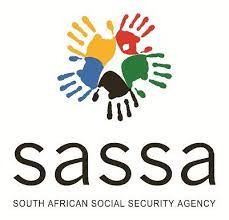The South African Social Security Agency (SASSA) and its Social Relief of Distress (SRD) Program: Empowering Lives during Challenging Times
Introduction
In South Africa, the fight against poverty and social inequality has been a critical priority for the government. Among the initiatives aimed at alleviating the struggles faced by vulnerable citizens is the South African Social Security Agency (SASSA). Founded with the vision of uplifting lives and ensuring social protection, SASSA plays a pivotal role in delivering essential support to those in need. One of its crucial programs, the Social Relief of Distress (SRD), stands as a beacon of hope for individuals facing difficult circumstances. This article sheds light on the significance and impact of the SASSA SRD program in empowering lives during challenging times.

Sassa
Understanding the Social Relief of Distress (SRD) Program
The Social Relief of Distress program is a humanitarian intervention introduced by SASSA to provide temporary assistance to South African citizens who are facing immediate hardship. It serves as a safety net for those who do not qualify for other forms of social grants but find themselves in urgent need of support due to various unexpected challenges. These challenges could range from job losses, natural disasters, family crises, or any situation that threatens their basic well-being.
Eligibility and Application Process
To ensure that the SRD program reaches those who genuinely require assistance, SASSA has set specific eligibility criteria. Applicants must be South African citizens or permanent residents, over the age of 18, and not receiving any other form of social grant or income support. Additionally, the applicant’s income and assets must fall below a certain threshold to be considered for the program.
The application process is designed to be accessible and straightforward, with various channels available, including online applications, phone calls, and visits to SASSA offices. The agency endeavors to process applications promptly to deliver timely relief to those in dire circumstances.
Temporary Support and Empowerment
The SRD program provides short-term assistance in the form of a monthly cash grant, aiding recipients in meeting their basic needs such as food, clothing, and shelter during their times of distress. This temporary support serves as a lifeline, preventing vulnerable individuals and families from sinking further into poverty.
Moreover, the program extends beyond just financial aid. SASSA seeks to empower beneficiaries by connecting them with relevant resources, information, and support services to help them regain stability and eventually transition towards self-sufficiency. This may include access to skills training, employment opportunities, and counseling services to address underlying issues effectively.
Challenges and Future Prospects
While the SRD program has been instrumental in addressing immediate hardships, it is not without challenges. Limited resources and the overwhelming demand for assistance have sometimes stretched the program’s capacity, causing delays in processing applications. Additionally, identifying and reaching all eligible recipients in remote or marginalized areas remains an ongoing task.
To enhance the program’s effectiveness, SASSA continues to work on streamlining its processes, improving outreach efforts, and collaborating with other governmental and non-governmental organizations. Public support and funding allocation remain crucial factors in ensuring the longevity and expansion of the program to reach even more individuals in need.
Conclusion
The South African Social Security Agency’s Social Relief of Distress (SRD) program stands as a beacon of hope and compassion, providing temporary support to vulnerable citizens during their darkest hours. Through the program’s outreach and assistance, SASSA empowers lives, nurturing resilience and hope in the face of adversity. As the government and communities come together to support and strengthen such programs, there is a greater opportunity to build a more inclusive and compassionate society, where no citizen is left behind.
Highly Recommended
- Sassa Appeal Status Check
- Sassa Check
- Sassa Srd Status Check online
- Sassa Srd Status
- Sassa Status Check for r350 Payment Dates
- Sassa Srd Status Check
- Sassa Status Check for r350
- SASSA status check
- Online Application for Universities
- Crafting an Effective Study Plan for Success
- How Many Years To Study Law In South Africa
- Where Can I Study Teaching In South Africa?
- Pursuing a Nursing Career Without Matric in South Africa
- Literature Study: Unraveling the Tapestry of Human Imagination
- Understanding Study Loans in South Africa
- Pursuing a Nursing Career with Grade 11
